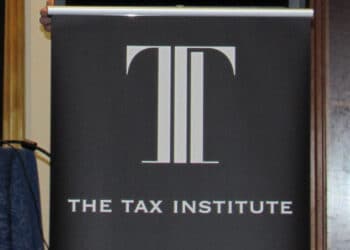Speaking to SMSF Adviser, BDO national leader, superannuation, Shirley Schaefer said there are plenty of SMSF trustees who make mistakes unintentionally despite having the best intentions, and where these mistakes can be identified and rectified promptly, the ATO is likely to take a more reasonable view around penalties and sometimes remit them.
“If we go to a three-year cycle, it could be three or four years before any mistakes are found, and so because it’s a strict liability provision, penalties are imposed, and the ATO might not be inclined to remit penalties if it’s gone on for three years. Their view will be well the trustee is responsible, they should know what is going on and that’s fair,” said Ms Schaefer.
“If things are fixed promptly the ATO is more likely to show them some contrition, you get a much better result, but if things have gone on for too long the ATO tend to say well you need to be penalised.”
Ms Schaefer also pointed out that some trustees already struggle to find documentation from 12 or 18 months ago, or remember what actions they did or what certain transactions are. Increasing the time period to three years will only make this worse.
“If they can’t find it now, how are they going to find it after three years?” she said.
“If there’s been a mistake, then potentially there will be increased audit fees as the auditors will have to dig down further to get to the bottom of it. There are fees to rectify it as well, which could be more the longer it goes on, it just doesn’t seem to make any sense to me.”
Tactical Super director Deanne Firth said the first thing auditors do when they receive the financial statements is compare the prior year figures to the prior year audited financials and make sure everything carries forward correctly.
“Currently an SMSF is audited under the Australian Auditing Standards. These standards do allow for instances where you have not been provided with the prior year audit. You have to do additional testing on the opening balances,” she explained.
“Consider two risk areas, the cost base and member components. Without an audit of the prior two years’ financials we can’t ascertain whether those components are correct unless we do additional testing on the prior year’s figures, basically resulting in an audit of the financials since the last audit. Unless we complete this additional work we couldn’t sign off on the audit under the Australian Accounting Standards.”
Ms Firth said it is also likely to lead to a greater administration cost to the ATO as they will need to keep track of the audit of each fund that is due, and which SMSFs are on the “good list or the naughty list”.
“How much will the SMSF levy be increased by to cover this cost?” said Ms Firth.



I would like to know if the commencement date is 1/7/2019, does this mean that the financial year 2019 does not have to be audited? What are specialist SMSF Auditors who had to reapply and register with ASIC only a few years ago, going to do for the two years audits are not required? [color=blue]Obviously very little thought has gone into this or the Treasurer Scott Morrison has bee[i][/i]n mislead.[/color]
In the situation where an auditor audits a fund each year I fail to understand how tripling the amount of work carried out by an auditor due to a three year audit will prove anything what so ever when he has already audited the accounts previously. This could just about kill any viability in operating an SMSF and once again bureaucracy gone crazy.
So will this legislation be extended to all super funds or just targeted at SMSFs no matter what type of fund?
This type of stupidity will force SMSF operating costs unnecessarily through the roof and ordinary mums and dads out of the SMSF option.
What a wonderful progressive thinking country we have become!!!
I’ll be very surprised if this proposal goes ahead.
This announcement has sent shock waves through the SMSF audit industry which has undergone significant changes over the past 8 years with the introduction of SMSF Auditor registration, stricter requirements on professional development and independence.
However, this is not a new initiative. In contrast, this proposal was one of many considered by the Cooper Review as part of the Federal Governments Super System Review established in 2009. Whilst many interested parties are lamenting the pros and cons of the proposal it seems more logical to consider the findings of the Super System Review which considered the Governance, Efficiency, Structure and Operation of Australia’s Superannuation including SMSFs.
According to the report1 “Approved auditors are the cornerstone of the existing regulatory framework and are heavily relied on by the ATO to manage SMSF compliance. Their competence and independence should provide the level of assurance that a compliance‐based regulatory framework demands.” Based on that opinion the Approved SMSF Auditor regime was introduced which saw ASIC and the ATO combine forces armed with new powers to regulate auditors to ensure competency and independence.
The Cooper Review responded to submissions to reduce audit frequency as follows:
“7.5.1 The Panel believes that the annual audit provides a high level of assurance to members, regulators, government and the community more generally. Without this assurance, it would be unlikely the current ‘control’ features enjoyed by trustees could be retained.
Some SMSF trustee submissions recommended the removal of the audit requirement or for its frequency to be reduced. These submissions often cited cost and the belief that the audit was unnecessary. The Panel strongly rejects these views, noting that the extent of tax concessions for SMSFs justifies the public interest in independent assurance about the existence and value of fund assets, and funds’ compliance with legislated requirements.
On the other hand, other submissions indicated that having less frequent audits would result in increased compliance costs and potentially a greater number of contraventions throughout the sector. The Panel agrees with these views and it also believes the annual audit acts to engage trustees with their superannuation.
Given the growing size of the SMSF sector and the importance of the audit role, the Panel believes that the current frequency of annual audits is appropriate and should not be reduced.”
Since the date of the Cooper Review changes to superannuation rules including market value reporting, transfer balance caps, and access to non-concessional contribution caps, have increased, not decreased, the need for an annual audit that verifies the integrity of SMSF financials.
It is argued that, if a three-year audit cycle is introduced, then the audit must cover the three-year period which will result in increased compliance costs. Further, with the longer cycle being public knowledge not only is there increased potential for trustee mistakes and or mischief, but the potential for professional fraudsters to take advantage is unquantifiable.
Given the fundamental role auditors play in the SMSF regulatory framework, true independence of auditors is crucial for the efficient and effective operation of the SMSF sector. One is left to question how an auditor’s independence will not be impaired by the proposed changes and, how this is in the public interest given the significant tax concessions and government resources allocated to this sector?
I have no doubt that this Budget proposal has the intention of an [u]audit of the full 3 years[/u] conducted [u]after[/u] the end of the third year. There is very little detail in the Budget papers. No doubt the ATO & ASIC has to interpret it this way in any case. How can they not? There may be some small saving in that, but not much. For auditors, it should be a case of tripling the audit budget, then see what their over-crowded SMSF auditor market does to drive the fees back down to unsustainable levels again.